How to Tie a Uni Knot
The Uni Knot
Of all the fishing knots out there, the Uni Knot is one that all anglers need to know because it can be effectively used for so many different connections.
Many anglers refer to the Uni Knot as "T he most useful fishing knot."
Not only can it be used for tying directly to hooks and lures (traditional "uni knot"), but it also can be used for connecting two lines together ("double uni knot")…
And it works on an assortment of different lines and sizes.
So knowing just this one knot, an angler can be ready handle almost all knot needs that come up while fishing.
Its breaking strength has performed well in our knot strength contests while it is surprisingly basic in nature to tie.
And since it's easy to tie, it's a fantastic knot for teaching to kids so that they can be ready to tie complete leader assemblies while only having to remember one knot.
➡ CLICK HEREto get a FREE PDF guide showing all of the essential steps on tying the Uni Knot so that you can have a printout whenever you need it.
This post will show exactly how to tie the Uni knot for the most common two connection needs:
- Line-to-Hook/Lure (known as "Uni Knot")
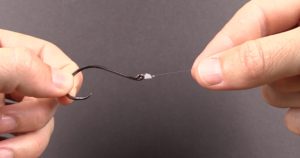
- Line-to-Line (known as "Double Uni Knot")
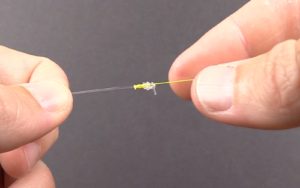
Plus, we'll cover the simple adjustment needed when tying the Uni knot with braided line.
Important Note : Braided line has a much lower friction coefficient compared to mono/fluoro, so all knots need to be slightly altered to adjust for their lower friction.
Finally, you'll be able to see a video showing exactly how to tie both connections and you can even download a free single-page guide that you can print out in case needed.
Traditional "Uni Knot"
When tying a hook or a lure to the end of fishing line, there are an absolute ton of options.
And the Uni Knot is a very popular choice because it's quick to tie while also having a high breaking strength.
The fact that it can be applied to line-to-line connections is an added bonus.
Pros of the Uni Knot
- Quick to tie with high breaking strength
- Can be used on almost all types & sizes of lines
Cons of the Uni Knot
- More bulky than some other options (like the Palomar, Orvis, Davy knots)
- Not quite as strong as the Palomar Knot
Steps to tie the Line-to-Hook/Lure Uni knot:
1. Thread line through hook/lure eye
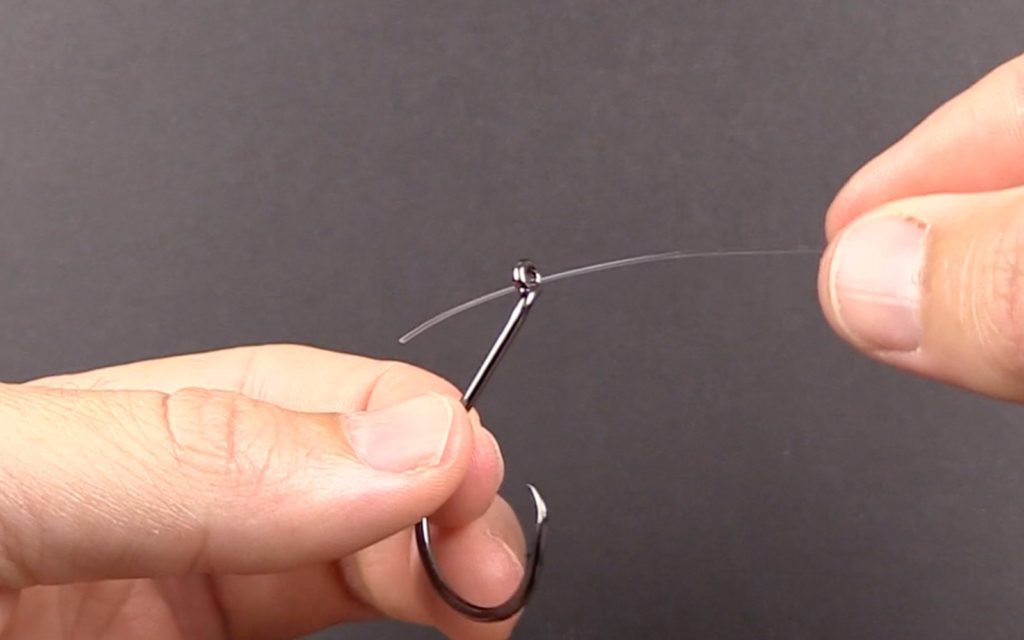
2. Lay ~6 inches of tag end over the main line and pinch lines right above the hook eye
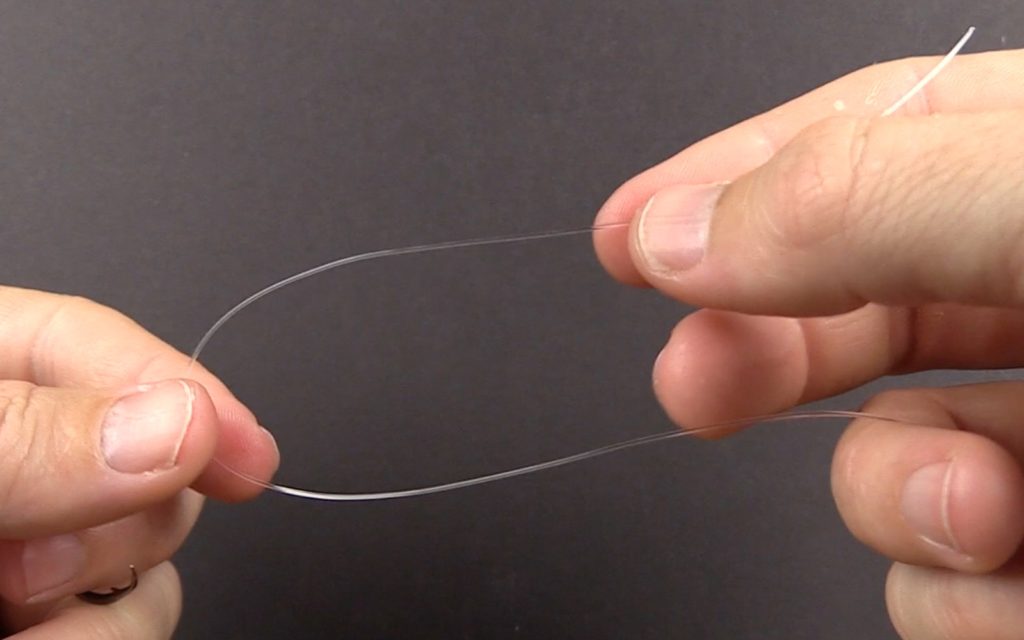
3. Curve tag end around so that it forms a loop in front of the doubled lines leaving its tag end pointing upward
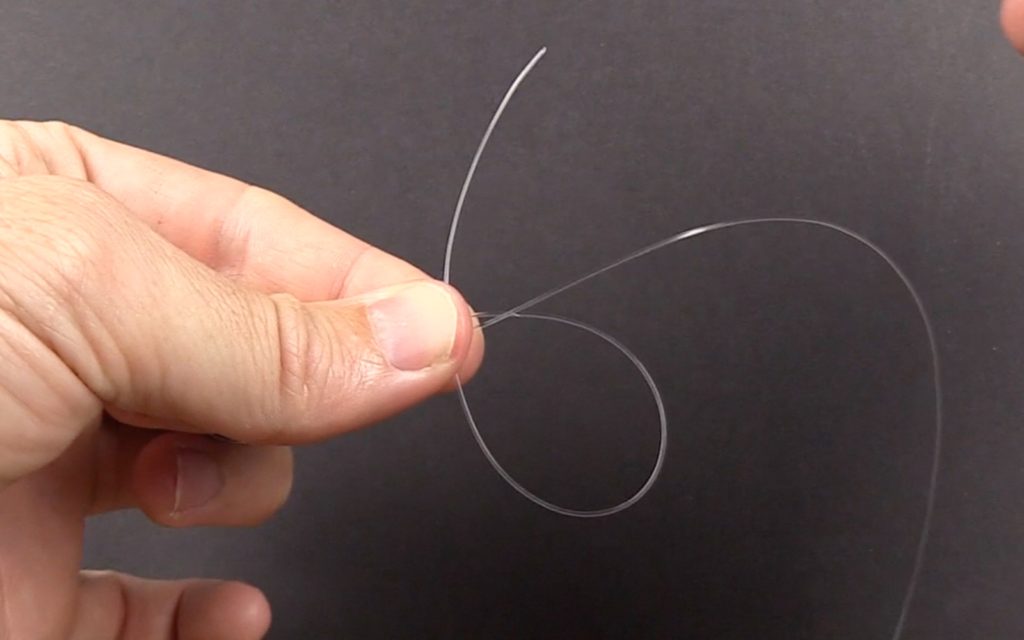
4. Wrap tag end around doubled lines going through the loop in each pass
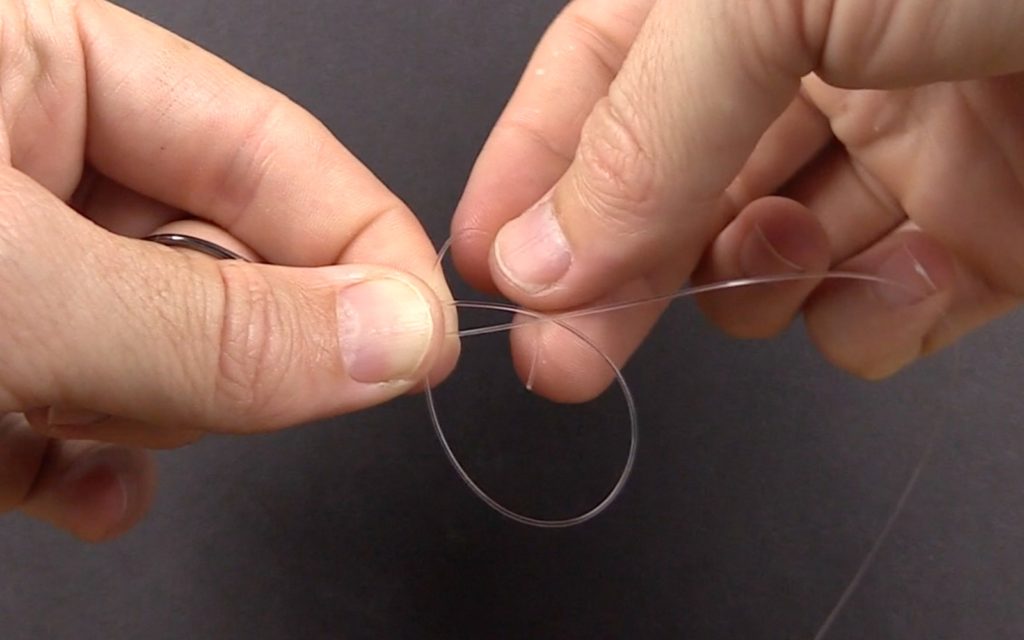
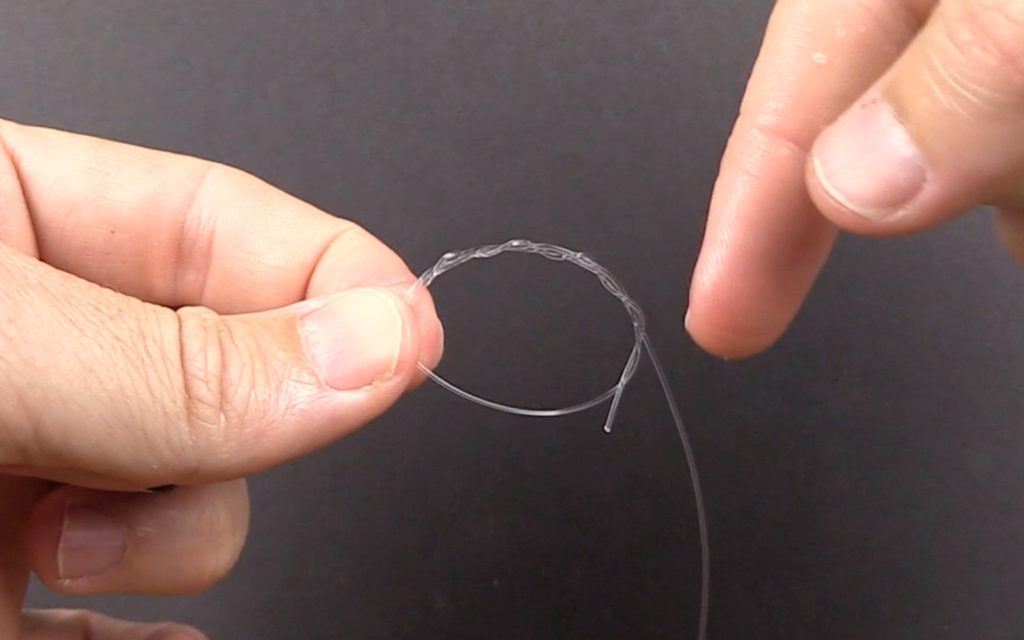
5. Pull on tag until finger tight, and then pull on mainline until knot slides down against hook/lure to lock into place
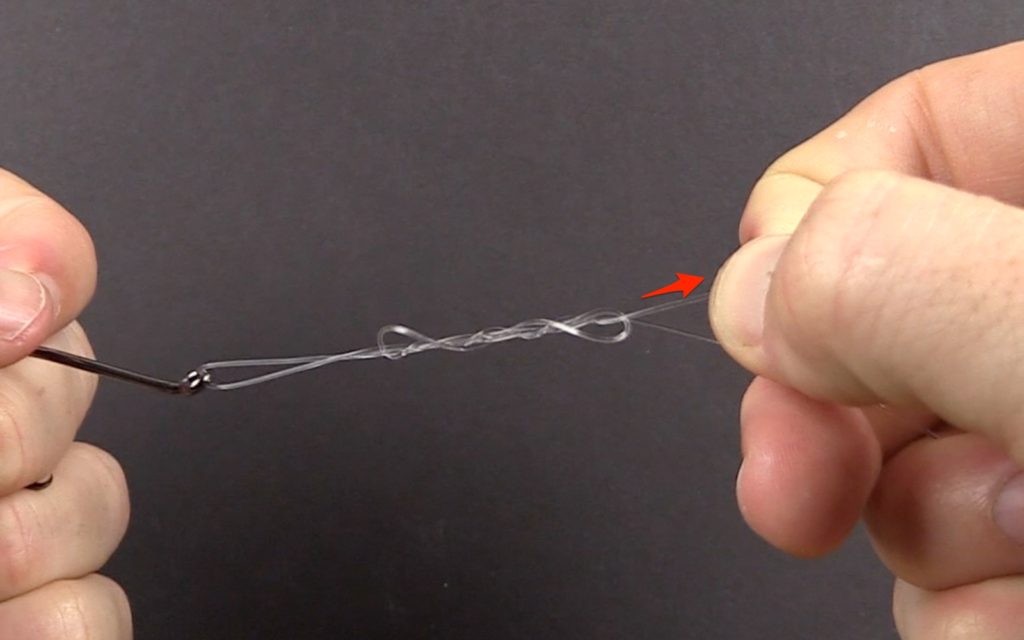
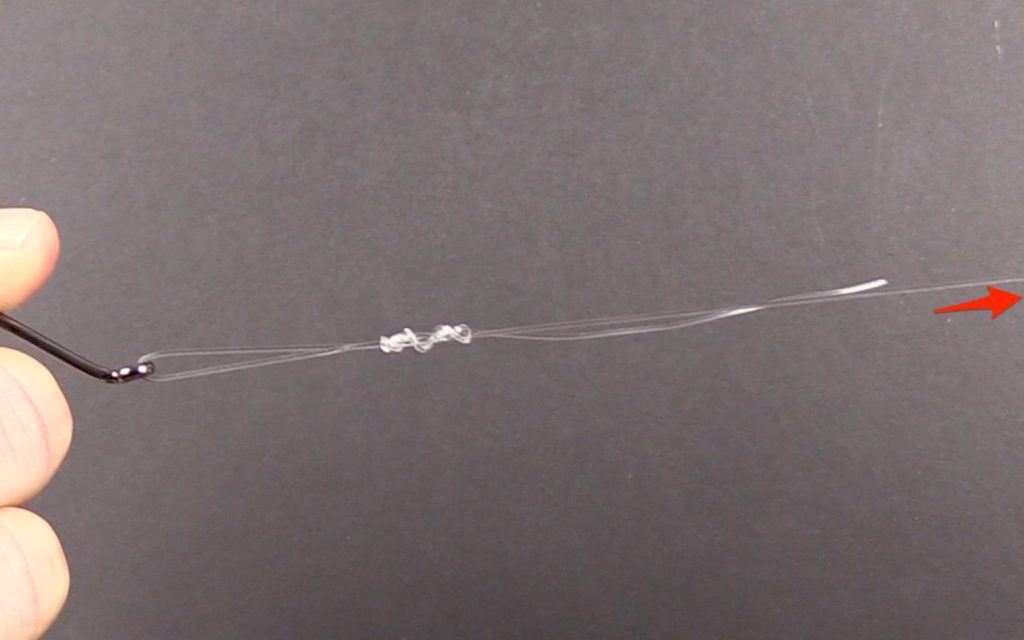
6. Continue pulling until the knot forms directly above the hook

CLICK HEREto get a FREE PDF guide showing all of the essential steps on tying the Uni Knot so that you can have a printout whenever you need it.
Note: Scroll down to see the complete video showing how to tie the Uni Knot.
Double Uni Knot (Line-to-Line)
For saltwater anglers, the most important knot of all is the line-to-line knot used to connect the fishing leader to the main line.
This connection is so important because anglers typically use the lightest line possible on their reel to maximize their casting performance while using a heavier leader to be able to withstand the sharp mouths of the fish that they are targeting.
In many cases, the breaking strength of the leader is twice as strong as the main line, so the line-to-line knot is going to be the weakest link in the system.
And of all the line to line fishing knots, the Double Uni-knot is one of the most popular of all.
Pros of Double Uni Knot
- Quick to tie with high breaking strength
- Can be used to connect almost all types & sizes of lines
Cons of Double Uni Knot
- More bulky than some other options (FG knot)
- Not as strong as the FG knot
Double Uni Knot Directions
1. Overlap leader and mainline with tags going in opposite directions
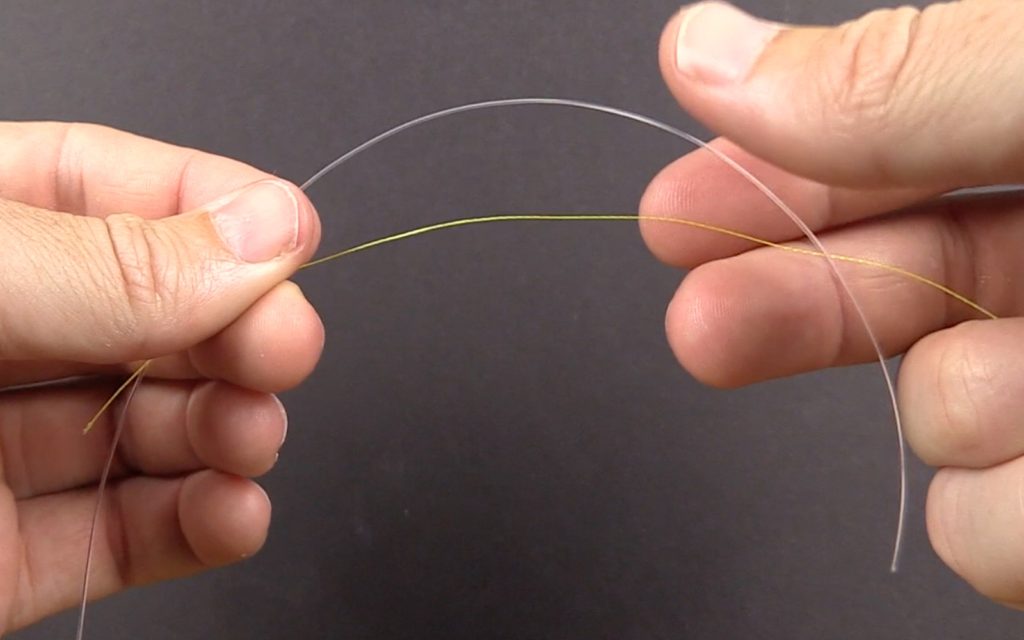
2. Grab onto the midpoint of the overlapped lines with left hand
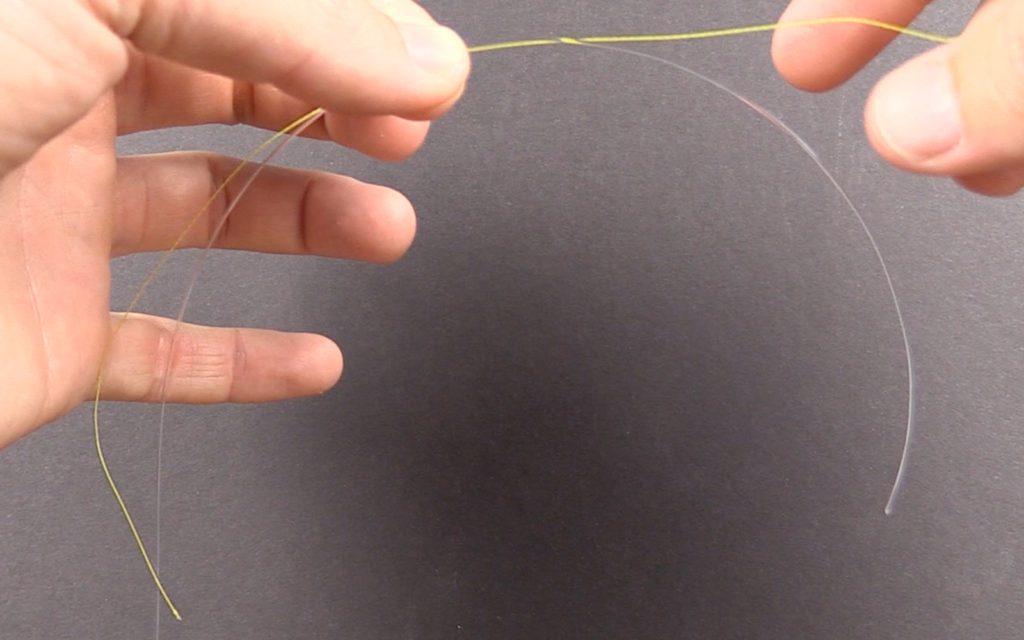
3. Create a loop in mono leaving tag end pointing up
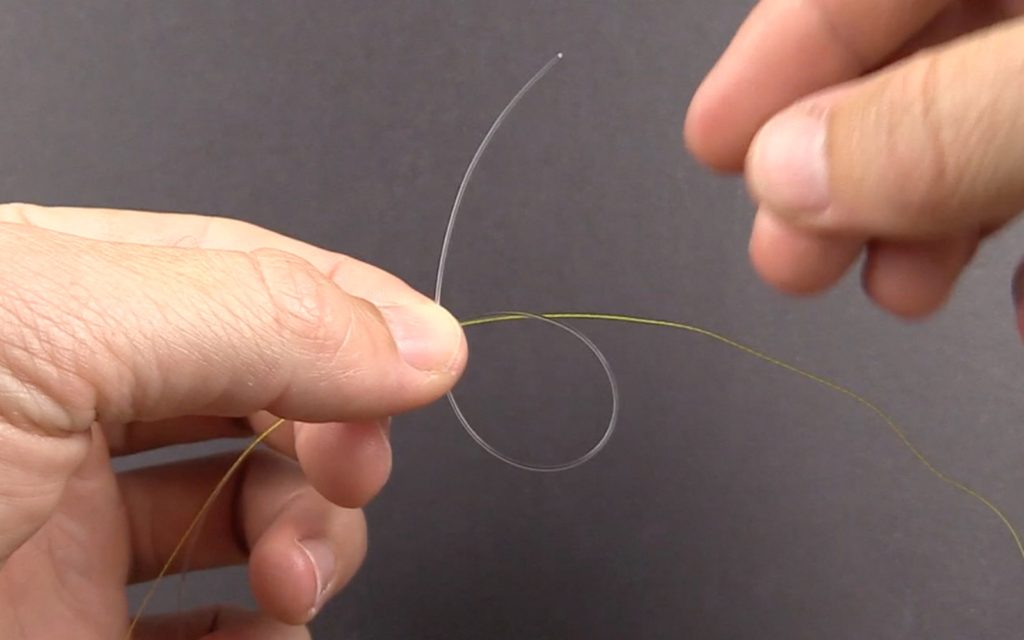
4. Wrap leader tag around the doubled line at the top of the loop (5 x for mono)
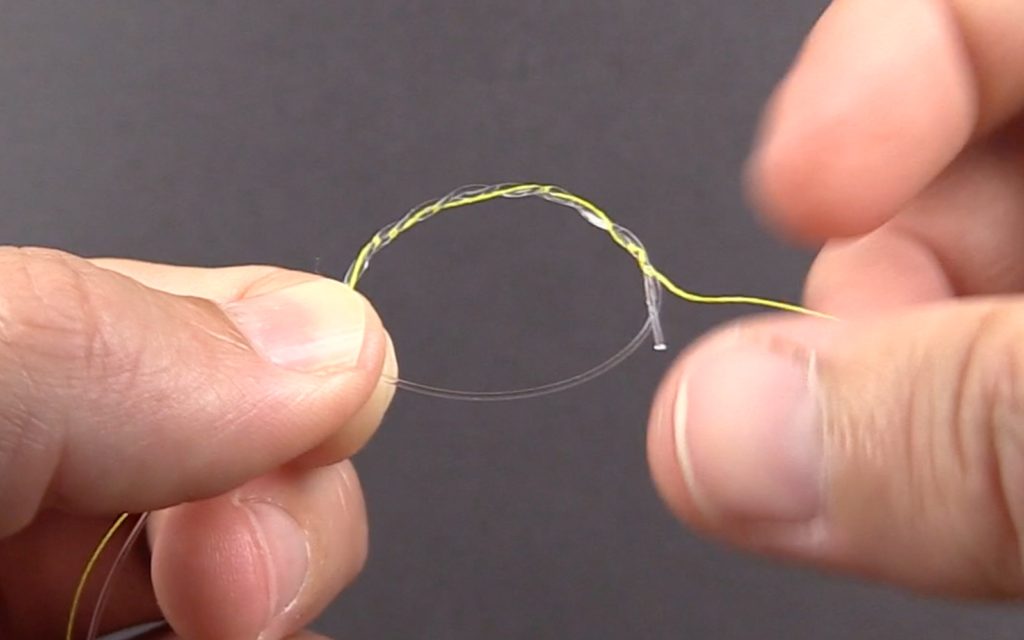
5. Pull on leader lines (main and tag) to tighten down the knot
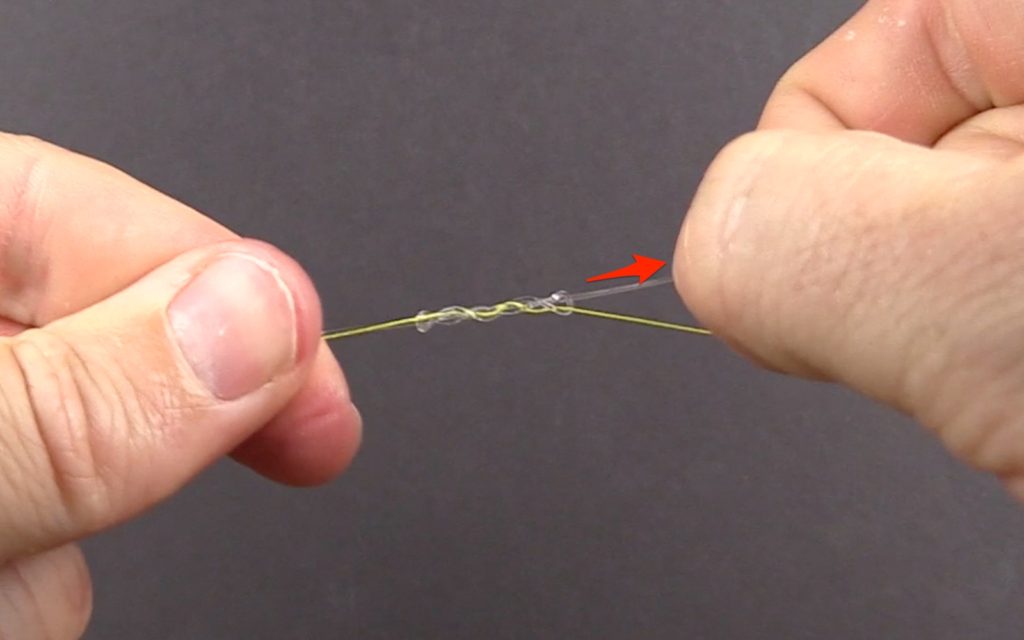
6. Hold cinched knot with your right hand, and then form a loop with the braid similar to step 3 above
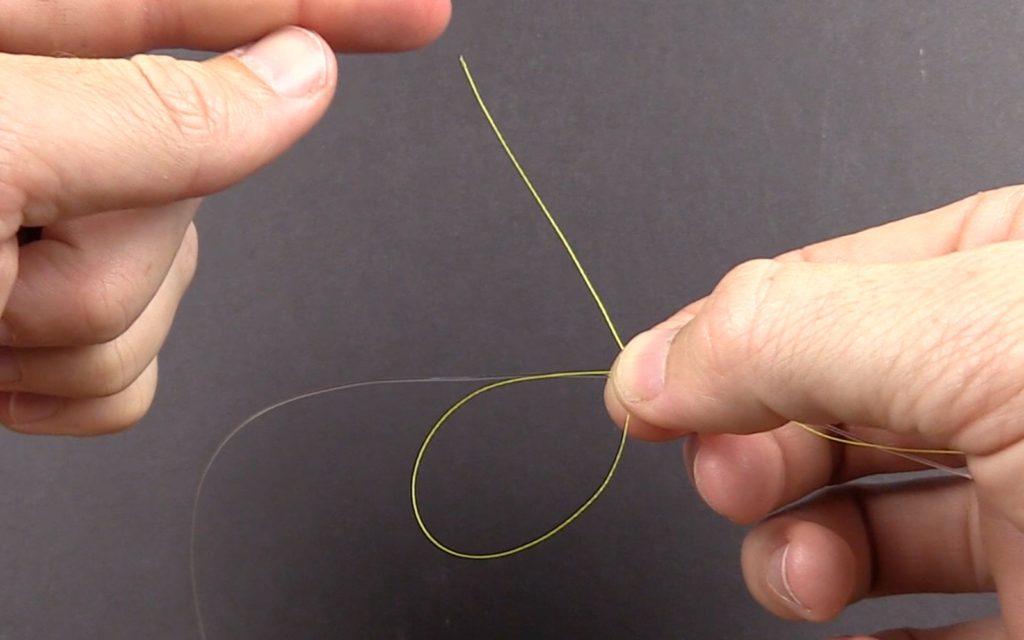
7. Wrap braid tag around the doubled line at the top of the loop (10 x for braid or 5 x for mono/fluoro)
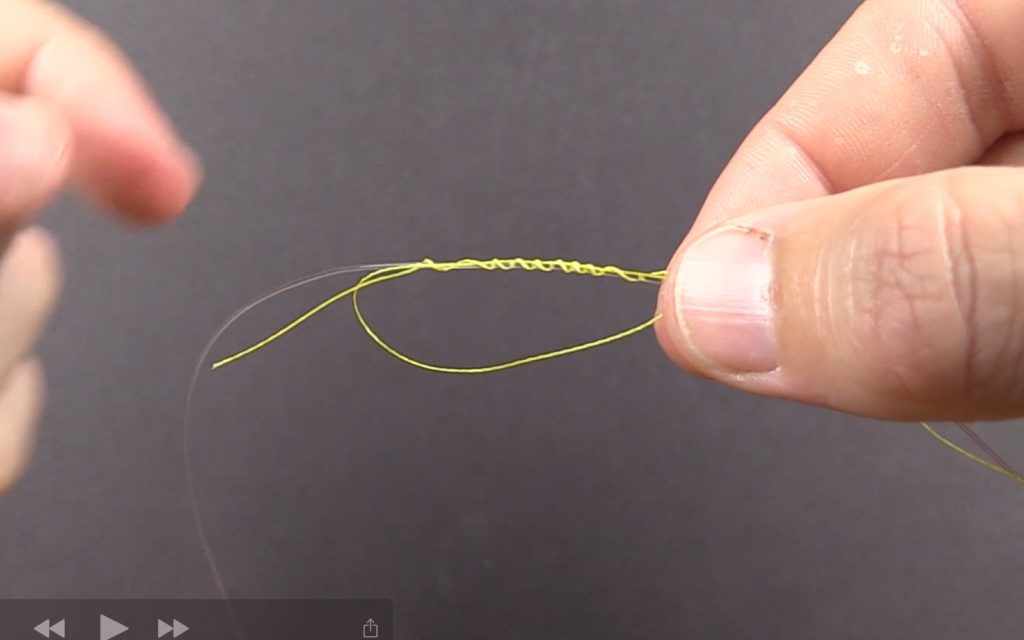
8. Pull on the tag end of the braid to tighten Uni knot coils
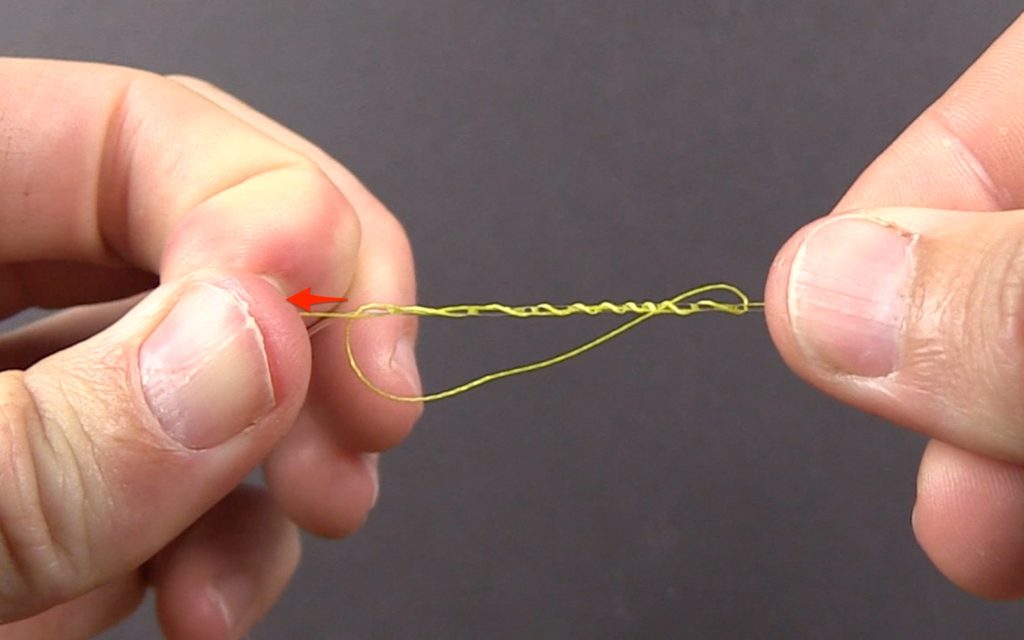
9. Now that both knots are tied and mostly tightened on the line, let go of tags and pull until they slide together
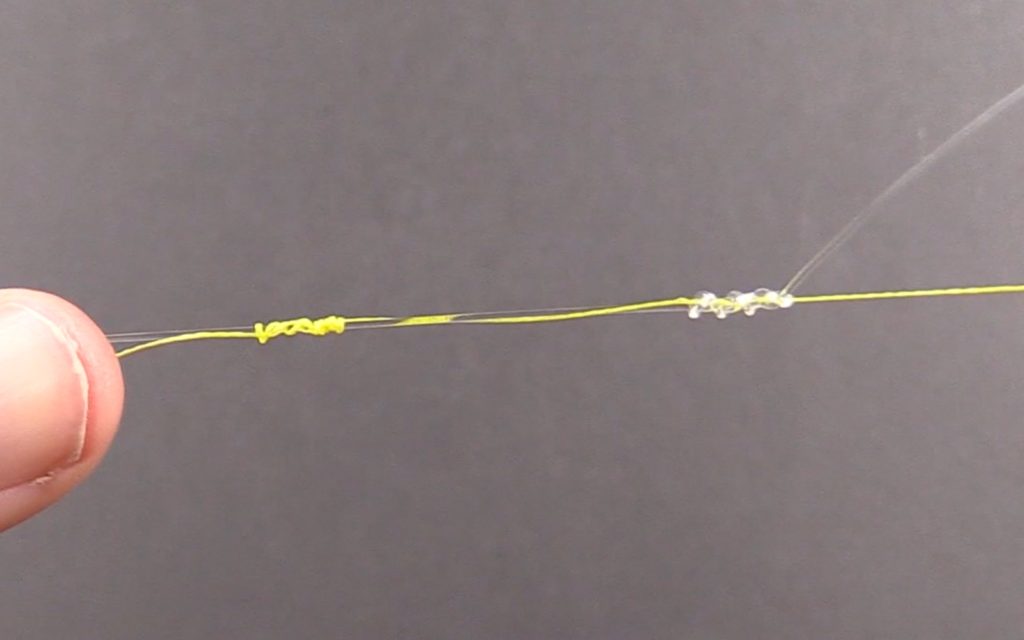
10. Once the knots slide into one another, they'll tighten up and lock into place forming a strong connection
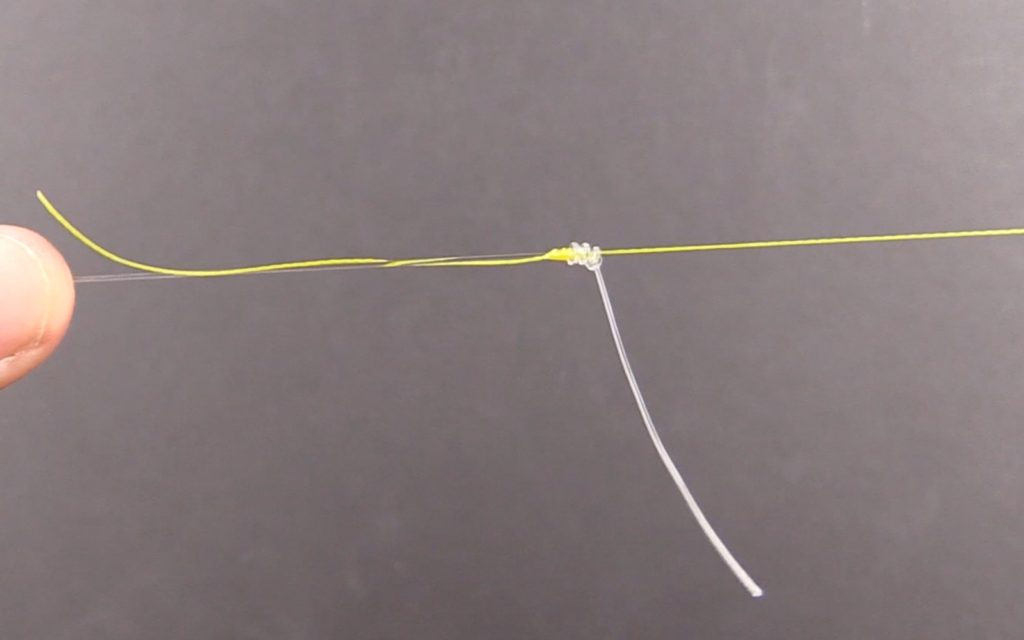
11. Cut of tags and you have a strong line to line connection
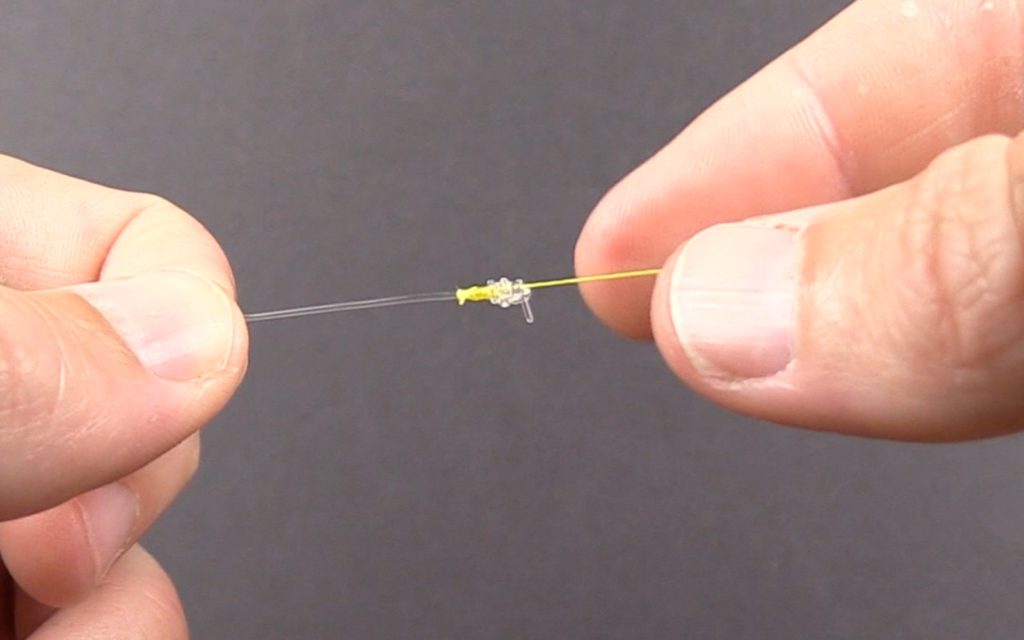
➡ CLICK HEREto get a FREE PDF guide showing all of the essential steps on tying the Uni Knot so that you can have a printout whenever you need it.
How To Tie The Uni Knot Video
Click below to see exactly how to tie the line to hook and line to line uni knot for completing an entire leader assembly:

Sign up for FREE to receive the latest saltwater fishing videos, tutorials, product reviews, and fishing product discounts!
The Strongest Uni Knot For Braid
Given how slick fishing line made from braid is, there are some needed adjustments to the Uni Knot that need to be made to make sure you can maximize your knot strength.
This video shows exactly how to tie the uni knot with braid.

Sign up for FREE to receive the latest saltwater fishing videos, tutorials, product reviews, and fishing product discounts!
Conclusion
The Uni Knot is one of the most popular of all fishing knots given that it is easy to tie, leaves a strong connection for all line types, and can be used for both line-to-hook and line-to-line connections.
So this is a must know knot for anglers of all ages.
And best of all, teaching this knot to a young child can ensure that the child can be ready for almost all knot needs that he or she will face.
What is your favorite fishing knot? Let us know in the comments.
Fish On!
Go To Our Knot Testing Homepage [Full Knot Rankings]
Source: https://www.saltstrong.com/articles/uni-knot/